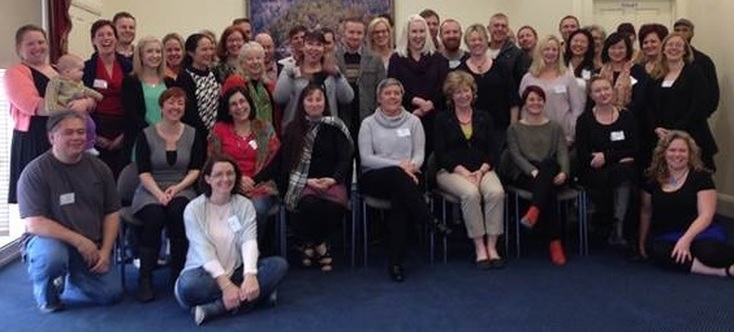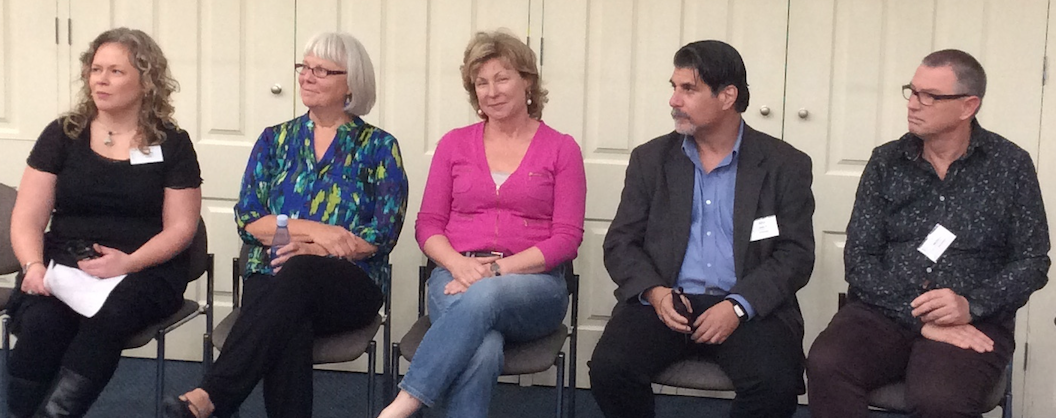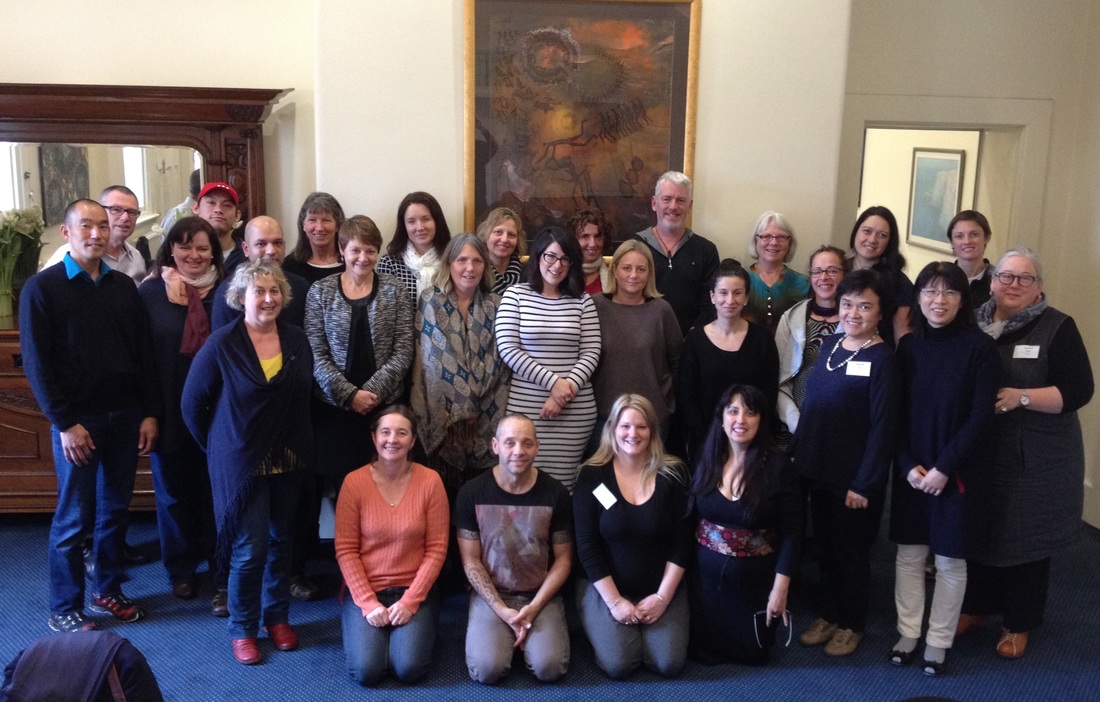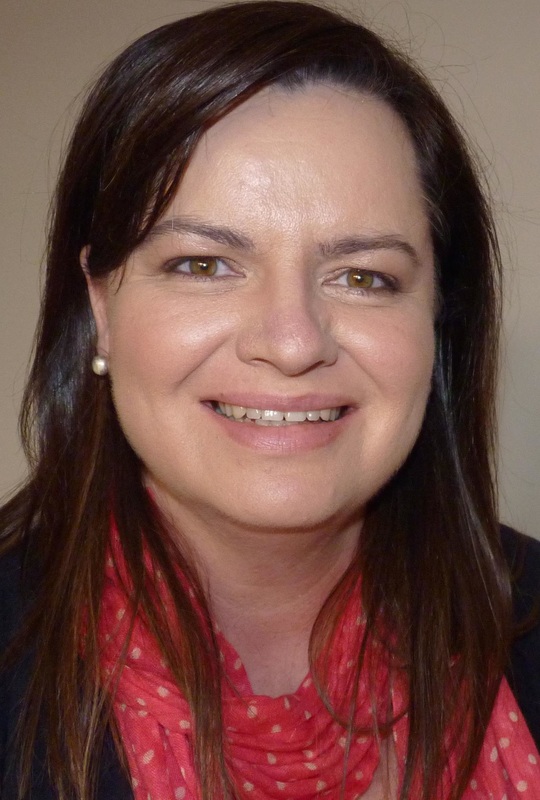I like to think we are entering an Age of Compassion. Sure, there are horrifying developments happening politically around the world, but the heartening thing is that the people are resisting. They are taking action to advocate for and protect others who are suffering. Thousands of people are marching, protesting and taking part.
Many compassion-based interventions have been developed over recent years. Compassion-focused therapy (CFT; Gilbert, 2014), Compassion Cultivation Training (CCT; Jazaieri et al., 2013), and Mindful Self-Compassion (MSC; Neff & Germer, 2013) are all approaches to enhancing compassion for others and for oneself. Such programs are vitally important to nurture this growing compassionate movement. The challenge is that all of these programs require people to engage, do self-practice and take compassionate action. They require behavioural change!
This is where motivational interviewing (MI) can contribute to making the world a more compassionate place. MI has long been used as a prelude to other treatments, including CBT-based interventions, and has been found to enhance program engagement, homework practice and program completion (Burke et al., 2003; Hettema et al., 2005).
Perhaps MI could be incorporated as a prelude to compassion-based interventions?
In particular, MI could help potential participants to explore and enhance their sense of importance regarding living a more compassionate life, and their confidence in being able to do so.
Furthermore, these interventions often include (a) engaging with, and attending, the intervention’s sessions, sometimes 8 weekly 2-hour sessions, (b) to complete the self-practice for homework, especially loving-kindness and compassion meditations, and (c) to take steps towards specific compassionate or self-compassionate actions in daily life. These specific behaviours could be the focus of MI in compassion-based interventions.
The world is facing enormous challenges at the moment. Fear and anger are being used to motivate people to hunker down, self-protect, and exclude and reject others. Ultimately this is causing greater suffering. MI could make a wonderful contribution to helping people to explore more deeply their values and their abilities to take part in making the world a more compassionate place.
References:
Many compassion-based interventions have been developed over recent years. Compassion-focused therapy (CFT; Gilbert, 2014), Compassion Cultivation Training (CCT; Jazaieri et al., 2013), and Mindful Self-Compassion (MSC; Neff & Germer, 2013) are all approaches to enhancing compassion for others and for oneself. Such programs are vitally important to nurture this growing compassionate movement. The challenge is that all of these programs require people to engage, do self-practice and take compassionate action. They require behavioural change!
This is where motivational interviewing (MI) can contribute to making the world a more compassionate place. MI has long been used as a prelude to other treatments, including CBT-based interventions, and has been found to enhance program engagement, homework practice and program completion (Burke et al., 2003; Hettema et al., 2005).
Perhaps MI could be incorporated as a prelude to compassion-based interventions?
In particular, MI could help potential participants to explore and enhance their sense of importance regarding living a more compassionate life, and their confidence in being able to do so.
Furthermore, these interventions often include (a) engaging with, and attending, the intervention’s sessions, sometimes 8 weekly 2-hour sessions, (b) to complete the self-practice for homework, especially loving-kindness and compassion meditations, and (c) to take steps towards specific compassionate or self-compassionate actions in daily life. These specific behaviours could be the focus of MI in compassion-based interventions.
The world is facing enormous challenges at the moment. Fear and anger are being used to motivate people to hunker down, self-protect, and exclude and reject others. Ultimately this is causing greater suffering. MI could make a wonderful contribution to helping people to explore more deeply their values and their abilities to take part in making the world a more compassionate place.
References:
- Burke, B. L., Arkowitz, H., & Menchola, M. (2003). The efficacy of motivational interviewing: A meta-analysis of controlled clinical trials. Journal of Consulting and Clinical Psychology, 71, 843–861.
- Gilbert, P. (2014). The origins and nature of compassion focused therapy. British Journal of Clinical Psychology, 53, 6-41.
- Hettema, J., Steele, J., & Miller, W. R. (2005). Motivational interviewing. Annual Review of Clinical Psychology, 1, 91–111.
- Jazaieri, H., McGonigal, K., Jinpa, T., Doty, J. R., Gross, J. J., & Goldin, P. R. (2014). A randomized controlled trial of compassion cultivation training: Effects on mindfulness, affect, and emotion regulation. Motivation and Emotion, 38(1), 23-35.
- Neff, K. D., & Germer, C. K. (2013). A pilot study and randomized controlled trial of the Mindful Self-Compassion program. Journal of Clinical Psychology, 69, 24-44.







